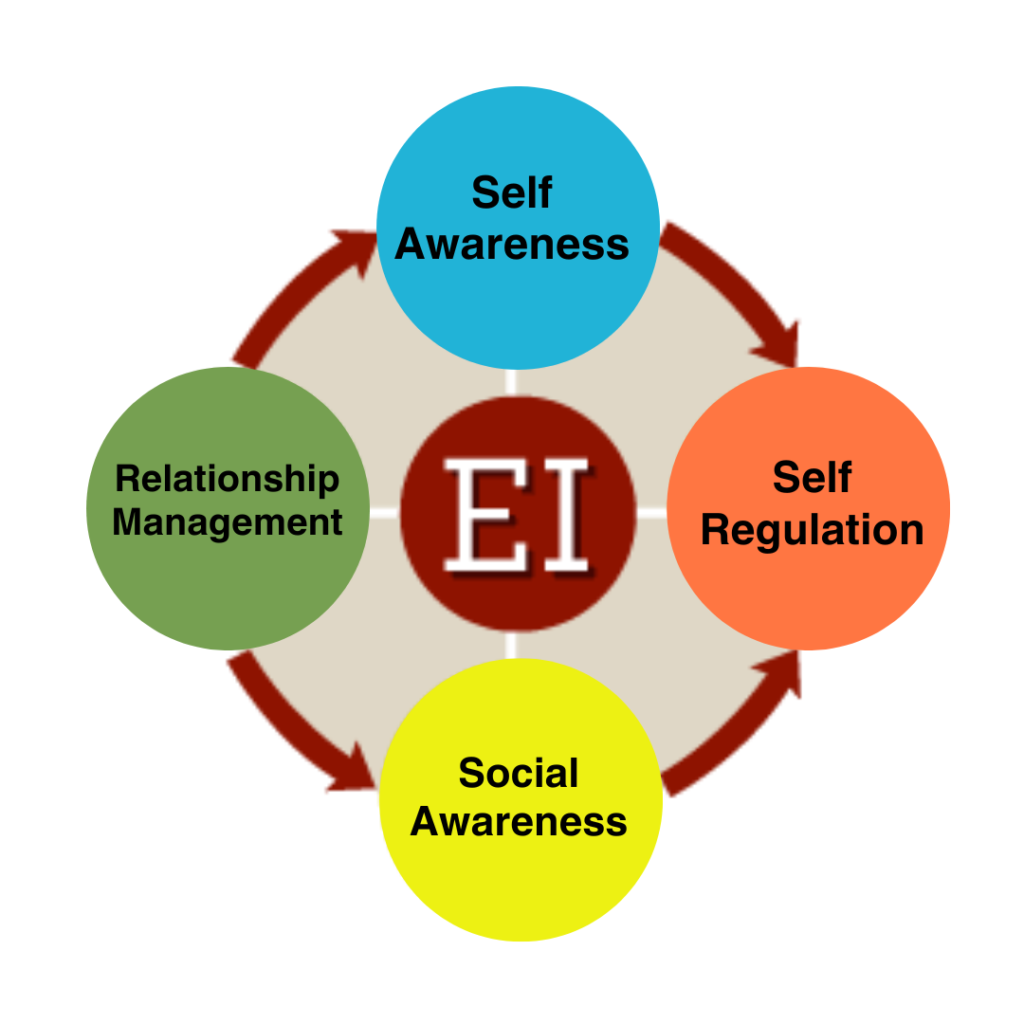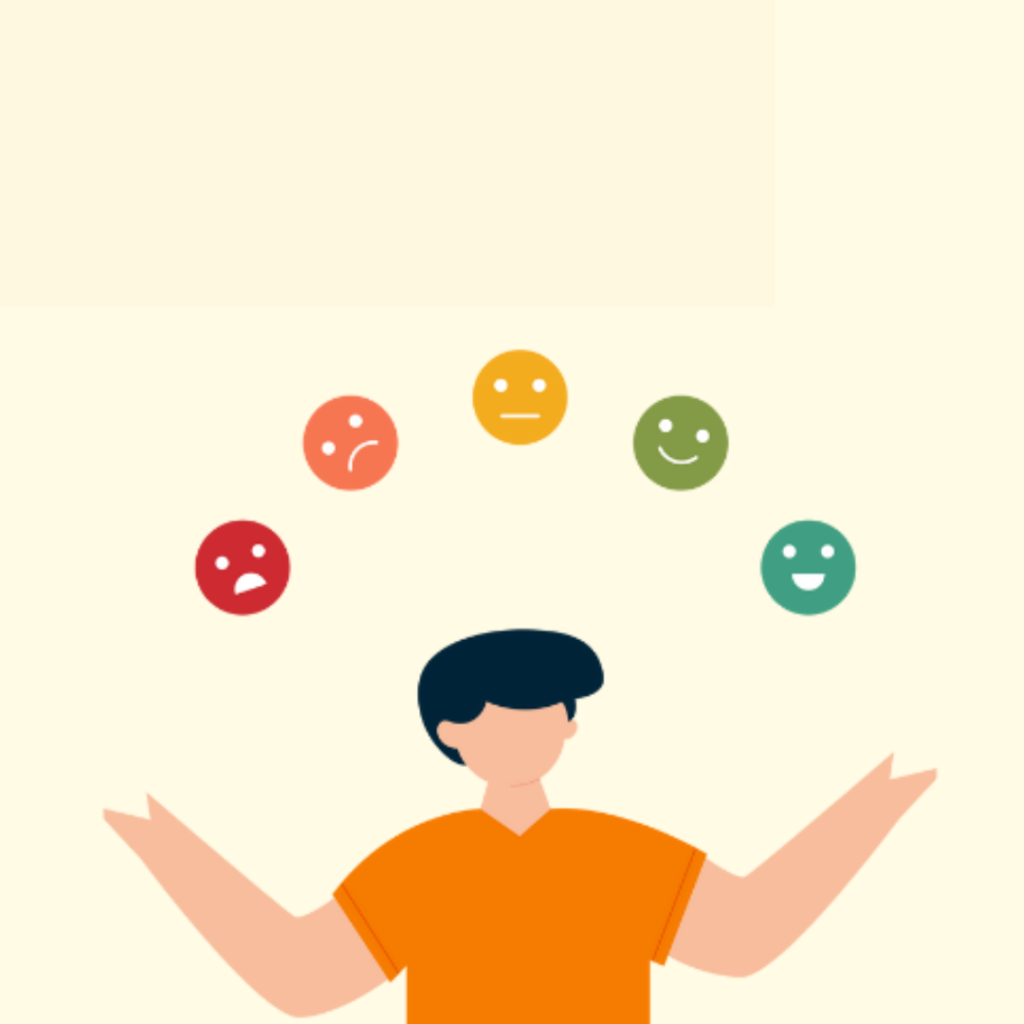The Key to Success in Life and Working today’s fast-paced world, where technical skills are highly valued, emotional intelligence (EI) stands out as a crucial factor for success in both personal and professional realms. Unlike IQ, which measures cognitive abilities, EI focuses on understanding and managing emotions, both in oneself and in others. In this article, we delve into the significance of emotional intelligence, its components, and its impact on various aspects of life.
The theory of emotional Intelligence was introduced by Peter Salovey and John D. Mayer in the 1990s, and further developed and brought to the lay public by Daniel Goleman. The concept, also known as emotional quotient or EQ, has gained wide acceptance.
What is Emotional Intelligence?
Emotional intelligence encompasses a range of skills that enable individuals to recognize, understand, and manage their own emotions, as well as effectively navigate social interactions. Coined by psychologists Peter Salovey and John Mayer in the early 1990s and popularized by Daniel Goleman’s bestselling book “Emotional Intelligence,” this concept has gained widespread recognition for its role in personal and professional success.
Components of Emotional Intelligence:
Self-Awareness: The ability to recognize and understand one’s own emotions, strengths, weaknesses, and values lays the foundation for emotional intelligence. Individuals with high self-awareness are more in tune with their feelings and motivations, which enables them to make better decisions and manage stress effectively.
Self-Regulation: This involves controlling one’s emotions, impulses, and reactions in various situations. People with strong self-regulation can adapt to change, remain calm under pressure, and think before acting, leading to better interpersonal relationships and conflict resolution.
Social Awareness: Also known as empathy, social awareness involves understanding the emotions, needs, and concerns of others. Individuals with high social awareness are skilled at recognizing nonverbal cues, listening actively, and building rapport, fostering stronger connections and teamwork.
Relationship Management: The ability to manage relationships effectively by communicating clearly, resolving conflicts, inspiring and influencing others, and building trust and rapport. Effective relationship management leads to collaborative environments, enhanced productivity, and better leadership.

Importance of Emotional Intelligence:
Enhanced Communication: Emotionally intelligent individuals excel in communication by expressing themselves clearly and empathetically, leading to better understanding and collaboration.
Effective Leadership: Leaders with high EI are adept at inspiring and motivating others, building cohesive teams, and resolving conflicts constructively, fostering a positive work culture and driving organizational success.
Stress Management: Emotional intelligence equips individuals with coping mechanisms to deal with stress and adversity, leading to improved resilience and mental well-being.
Improved Decision-Making: By considering both emotional and rational factors, emotionally intelligent individuals make better decisions, leading to more favorable outcomes in both personal and professional contexts.
Cultivating Emotional Intelligence: While some people may naturally possess higher levels of emotional intelligence, it is a skill that can be developed and strengthened over time through self-reflection, practice, and feedback.
STRATEGIES FOR ENHANCING EI INCLUDE
• Mindfulness Meditation
• Seeking Constructive Criticism
• Developing Empathy Through Active Listening
• Practicing Emotional Regulation Techniques.
HOW EMOTIONAL INTELLIGENCE CAN MAKE LEADERS MORE EFFECTIVE?
Leaders set the tone of their organization. If they lack emotional intelligence, it could have more far-reaching consequences, resulting in lower employee engagement and a higher turnover rate.
While you might excel at your job technically, if you can’t effectively communicate with your team or collaborate with others, those technical skills will get overlooked. By mastering emotional intelligence, you can continue to advance your career and organization.

EMOTIONAL INTELLIGENCE – ETHICAL DECISION-MAKING
Emotional Intelligence is the ability to recognize, understand, manage, and effectively use one’s own emotions and those of others. It plays a crucial role in ethical decision-making as it helps individuals empathize with the feelings and perspectives of others, fostering fairness and moral judgment.
A classic example Is Mahatma Gandhi’s use of Emotional Intelligence during the Indian independence movement. His ability to empathize with the British, his fellow countrymen, and even those who opposed him allowed him to make ethical decisions and actions rooted in non-violence and compassion.
CONCLUSION:
IN A WORLD WHERE RELATIONSHIPS AND INTERACTIONS PLAY A SIGNIFICANT ROLE IN PERSONAL AND PROFESSIONAL SUCCESS, EMOTIONAL INTELLIGENCE EMERGES AS A CRITICAL SKILL SET. BY UNDERSTANDING AND MANAGING EMOTIONS EFFECTIVELY, INDIVIDUALS CAN NAVIGATE LIFE’S CHALLENGES WITH RESILIENCE, BUILD MEANINGFUL CONNECTIONS, AND ACHIEVE THEIR GOALS WITH GREATER SATISFACTION AND FULFILLMENT. AS WE CONTINUE TO RECOGNIZE THE IMPORTANCE OF EI, CULTIVATING AND NURTURING THIS ASPECT OF OUR HUMANITY BECOMES ESSENTIAL FOR A THRIVING AND HARMONIOUS SOCIETY.





Leave a Reply